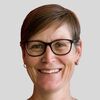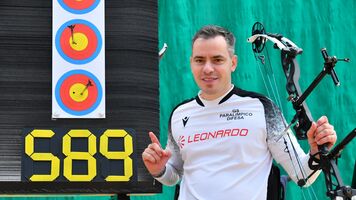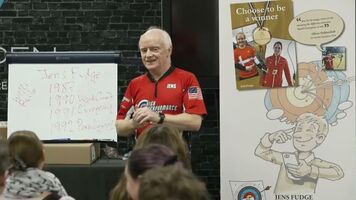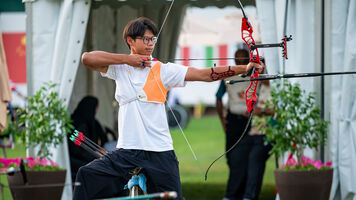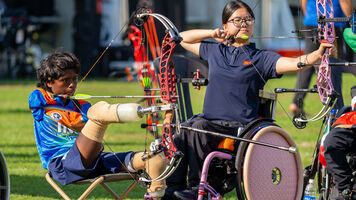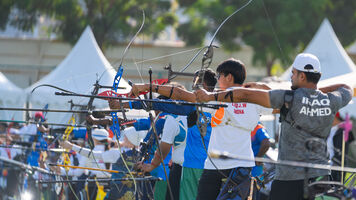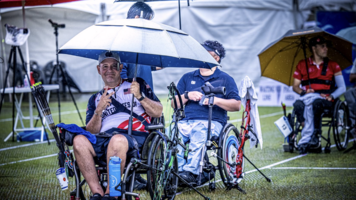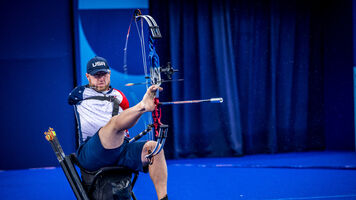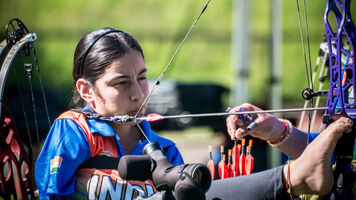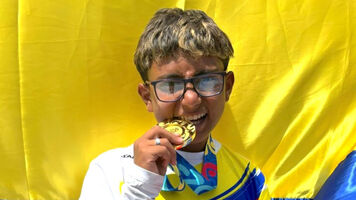European Union-led programme lays para archery foundations in Africa
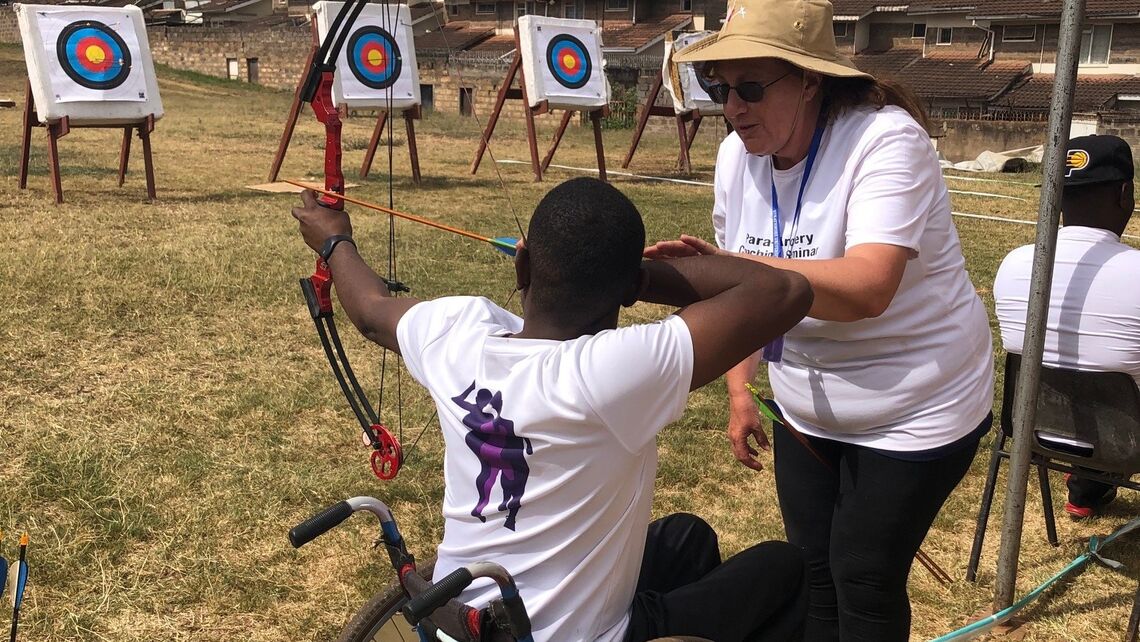
The third para archery coaching seminar in Africa took place in the Kenyan capital of Nairobi at the end of September 2022, marking another phase in a European Union-funded initiative to develop the sport for people with impairment across the continent.
For the first half of the year, the programme focused on judges. A national judging seminar was held in Uganda in April, with the top three most promising candidates invited to gain practical experience at the European Para Cup in Nove Mesto in July.
The four top coaches from the seminar in Nairobi will now be invited to gain real-life experience in the British para programme in November.
Para archery coaching seminars had previously been held in Egypt and Algeria. With an increasing number of archery coaches specialising in teaching impaired athletes available in Africa, it’s hoped that it will become steadily easier for people with an impairment to access the sport – and that ultimately more African para archers will compete at the upcoming Paris 2024 and LA 2028 Paralympic Games.
“Para archery is very inclusive. Anybody, regardless of their level of ability or disability, can shoot,” said Hilda Gibson, who’s coordinating the project alongside Khaled Lamandé on behalf of World Archery, World Archery Europe and Archery GB.
“Many people who cannot do another sport can actually do archery, and so it would open sport to many more people.”
Funded under the European Union’s Erasmus programme and the Exchanges and Mobility in Sport initiative, the programme is designed to develop African para archery in the pillars of coaching, judging and competition performance.
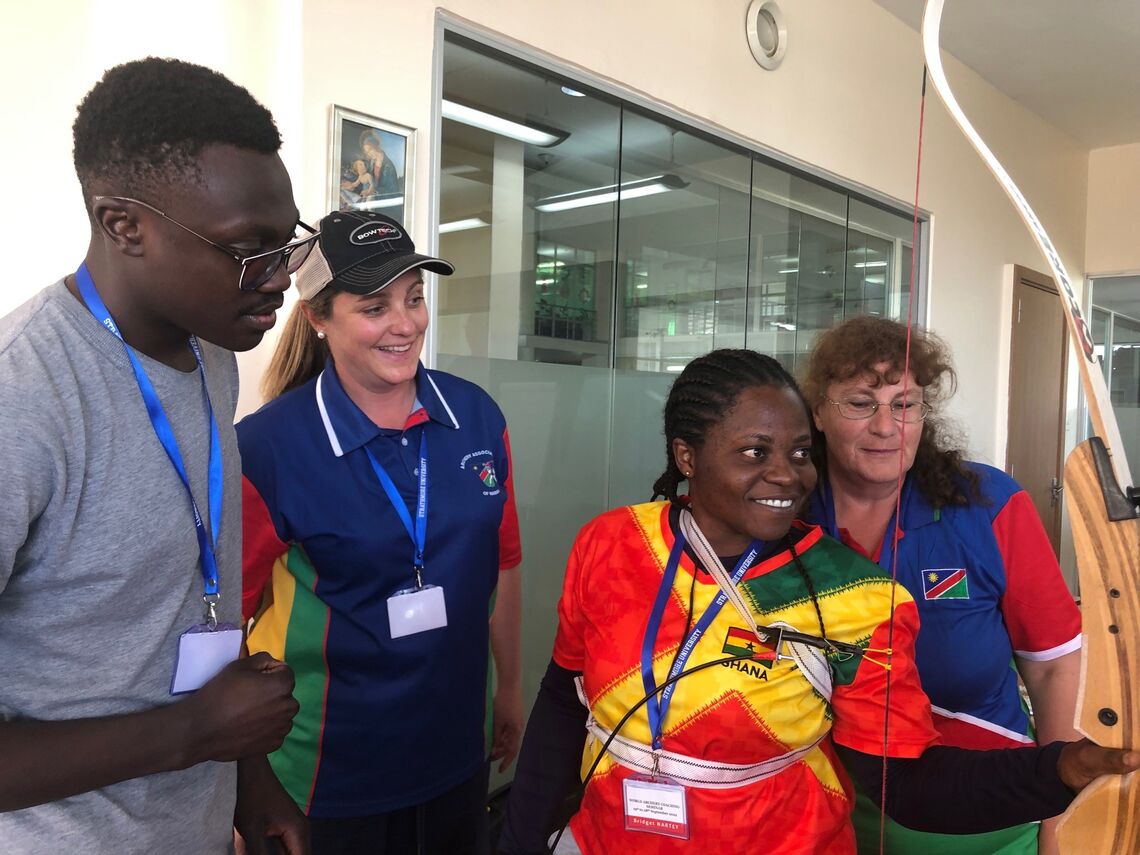
As well as the 11 coaches representing seven African nations who participated in last month’s seminar at Nairobi’s Strathmore University, 12 para athletes from the Kenyan Paralympic Committee also took part, receiving lessons as part of the workshop.
Among them was the president of the Paralympic Committee, Agnes Oluoch, who arrived to watch but then asked to join in.
“There was much joy and laughter as each arrow hit the target,” said Hilda.
With limited existing para archery infrastructure in Africa, nations sent candidates involved in other para sports to cross-train.
“I have participated in different para sports and also had the opportunity to coach some as well,” said Bridget Nartey, a para athlete-turned-coach who was accredited at the seminar. A polio survivor, Bridget competed in wheelchair basketball and wheelchair tennis in her home country of Ghana.
“In some of those sports, some of the physically challenged people are sidelined due to their conditions. I realised in para archery we look for inclusion, ideas and fix the problem for the archer.”
It’s hoped that Bridget and the rest of the coaching candidates will become part of a network in Africa that shares expertise, and regionally specific challenges, with each other and their counterparts in Europe, to lay the foundations for para archery in the continent.
Photos courtesy Hilda Gibson and Bridget Nartey.
